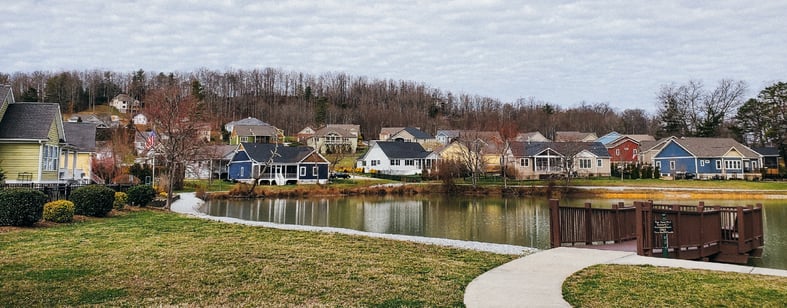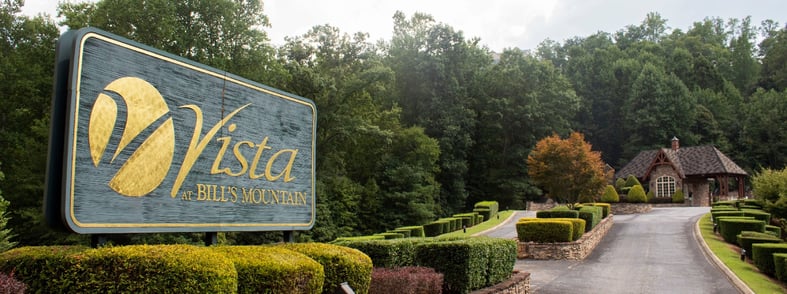
How to choose the right neighborhood is the first question to ask yourself when buying a new house. This goes beyond the job of simply house hunting. Not only is it going to determine your living experience, but it’s also the number one factor affecting the value of a house. Therefore, performing thorough neighborhood research is an unavoidable, foundational step in the house-buying process.
What is Neighborhood Research Anyway?
Neighborhood research refers to the process of gathering and evaluating information about the various aspects of a neighborhood you are considering moving to or purchasing real estate in. The goal of neighborhood research is to collect in-depth details across critical categories so you can determine if the area matches your needs and lifestyle before making a commitment. It empowers you to make a well-informed decision on a major investment.
All that being said, keep in mind that neighborhood research should not replace actual house hunting. Consider this information gathering as the starting point, allowing you to zero in on communities of interest before touring homes, making the house hunting process more productive and efficient.
Choose the Right Neighborhood - Start with these 8 Questions
Before we delve into the details, it's crucial to recognize that there are no wrong or right answers when choosing a neighborhood. The concept of a "perfect neighborhood" is highly subjective. What suits one person may not be suitable for another. During this research process, prioritize your preferences, identifying "must-haves" and "nice-to-haves" to tailor your choices accordingly.
1) What do you NOT want?
As important as it is to know what you do want in a neighborhood, you also need to know what you don't want. Will you say no to a neighborhood if train tracks are within a quarter mile? Are you opposed to dealing with an HOA? Will you walk away if the area is too close to the city center, too far out, or too noisy? Once you establish your deal breakers, you'll have a much easier time filtering your search for a new, ideal neighborhood.
2) How safe is the neighborhood?
Safety likely ranks among your top priorities in choosing a neighborhood. As you explore neighborhood safety, research local crime rates and crime types, but also pay attention to positive indicators that could reflect a safe neighborhood. For example, is it a gated community? Do neighbors leave their garages open? Do people (women and kids specifically) walk outside alone? Is there a neighborhood watch group? Are there streetlights? Finding the answers to these questions will make it easier for you to determine the levels of safety in the community.
3) Which school district is the new neighborhood in?
For families with children, being within the range of a good school district is one of the most important factors of choosing a neighborhood. Before you even begin looking at homes online, determine if the school your children attend outweighs the importance of the neighborhood. If the school holds greater significance, initiate your search within the desired school district.
However, even for households without school-aged kids, school districts remain crucial as they can influence property values. Considering potential resale scenarios, a desirable school district expands the pool of prospective buyers and contributes to the long-term value of your home.
4) How far is the neighborhood from key destinations?
Think about the places you go regularly — work, school, the gym, grocery stores, shopping centers, restaurants, even the pharmacy…. If convenience is important to you, consider choosing a neighborhood close to where you will be running a majority of your errands, or where you spend most of your social life. Ask yourself what would be a reasonable distance and commute time from each of these places to the neighborhood as you make your decision.
5) Do the neighborhood amenities fit your lifestyle?
How do you like to spend your afternoons? If you're a runner or you simply enjoy walking, you're probably looking for a walkable neighborhood with sidewalks or walking trails. If you are a dog owner, you might prefer a neighborhood with a nice dog park. If you're a fairly social neighbor, you might enjoy a community with a central hub, grills, picnic tables, fire pits, a swimming pool, tennis courts, and a playground for kids. Make sure that the amenities and the setting of your new neighborhood complement your interests and activities.
6) Do you prefer an established or new neighborhood?
When choosing a neighborhood, ask yourself whether you lean toward the latest updates and finishes of new constructions or prefer well-established communities. New suburbs tend to have cutting-edge builds and modern amenities and architecture, while older areas reveal their charm through larger spaces, mature trees, and timeless home designs. Whichever type you like better, make sure your neighborhood makes sense with it.
7) What is the average cost of living?
As you perform the neighborhood research, it’s important to learn about additional daily expenses beyond the house price itself. Various factors, such as property taxes, home values, and utilities, contribute to the overall cost of living. Keep in mind that monetary considerations can significantly differ between neighborhoods, and even within the same neighborhoods, based on whether they fall within city limits or not.
8) Does it fit into your financial plan?
Because moving to a new neighborhood is exciting, sometimes that excitement can cloud a buyer's logic. Keep your budget at the forefront as you search for a new neighborhood, but also keep an open mind. Your realtor can help you determine if a specific neighborhood is expected to appreciate or depreciate in value in the years to come so that you can make a smart financial investment.

Explore Vista Developers’ Communities
Buying a house is one of life's biggest decisions. First-time home buyers, in particular, don't just start house hunting — carefully consider the surrounding community. Devote time upfront to neighborhood research so you can plant roots and grow comfortable once you move in.
At Vista Developers, we love guiding home seekers through their search, and we also have several communities that allow you to experience the welcoming locals and beautiful landscapes present throughout Western North Carolina.
Contact us today to get one step closer to your dream home.


